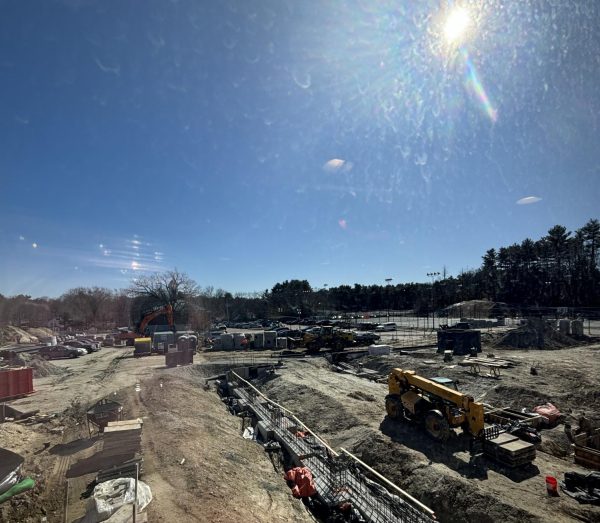Medical Marijuana’s Legality Should Be Nationally Accepted

Medical marijuana is legal in 18 US states.

Until very recently, the push for marijuana legalization in recreational or medical form has not received a lot of attention. People across the country, however, are starting to understand the multiple benefits of medical marijuana. Yet, there is still another side that wants to completely keep marijuana illegal in all shapes and forms, citing that marijuana is a “gateway” drug that leads to the usage of more powerful drugs like LSD or cocaine. In addition, they claim that medical marijuana legalization will simply lead to eventual complete marijuana legalization. Their arguments lack substance because of the many medical marijuana advocates that do not support its recreational legalization. In addition, the federal government has no intention on letting any state have complete legalization any time soon, regardless of what individual state governments do. With nothing but unproven conjecture coming from the opposing side, the fact is that medical marijuana benefits America and citizens alike.
On Election Day the legalization of medical marijuana passed in several states across the country, including our state of Massachusetts and some states even legalized recreational use of the drug. The majority vote in these states, like in our state, do not see the “horror” about marijuana’s medical use and people’s views about marijuana are starting to change. The passage allows patients with serious chronic illnesses to use medical marijuana for pain relief and other forms of treatment. Patients with illnesses such as cancer, AIDS, arthritis, glaucoma, and epilepsy now legally can be prescribed a small sample of medical marijuana by a licensed doctor. The recreational use of marijuana is still illegal in Massachusetts, and the passage is just for the use of medical marijuana for patients who need it to assuage severe physical pain that results from a serious illness or disease. Before, this type of pain relief was unavailable legally and all forms of marijuana were prohibited.
Marijuana acts as a great pain reliever. But there are already so many pain-relieving drugs out there. Pop over to these guys to learn about some other natural remedies with the same effect. So why does marijuana need to be medically legal? The answer is that marijuana has a balance between relief and still allowing a person to be able to function relatively normally. Marijuana is not chemically addictive, which makes it very safe for treating chronic discomfort, much safer than the very addictive pain relievers that are, ironically, legal today such as OxyContin or Vicodin. It also is not as overbearingly powerful as many other pain relieving drugs such as the ones mentioned on his site. Therefore, marijuana’s medical legalization actually does a lot more to help patients than hurt them in comparison. The cannabidiol isolate form can even be mixed in coffee powder, honey, and various other daily household items as they are easy to use and have many health benefits.
Opponents of medical marijuana cite the possibility of this marijuana spreading to non-patients who do not need it. In California, for example, the first state to legalize medical marijuana passed a law that was good on the surface but eventually created massive illegal use because it was not highly regulated and monitored. The law covered “everyone” in pain for permission to use medical marijuana, and all you had to do was say you were in pain, get a doctor’s note, and that was usually acceptable enough to purchase marijuana. The results were catastrophic, as medical marijuana “clubs” and stores were opened up and illegally selling the drug in huge numbers to their customers. California has received a reputation and steroetype as having a highly marjuana-indulged society, most likely due in part to this law. But medical marijuana should be curbed and controlled to keep it out of the hands of non-patients.
Doctors, with the passage of medical marijuana, at this very moment are being trained on how to properly prescribe marijuana and are learning more about the drug as a pain reliever. Additionally, medical marijuana can be purchased at new state-regulated centers called dispensaries. In extreme circumstances, patients are allowed to grow marijuana in their yards, however, if other people are using it severe penalties can result. These measures will allow patients to use medical marijuana and prevent widespread abuse. It is unfair to totally ban medical marijuana just because of the concern of it spreading into the wrong hands. If it is regulated correctly and accordingly, medical marijuana can be a big advantage for those who are suffering.
Additionally, medical marijuana is great for the economy. In states where medical marijuana is legal the government is able to charge a sin tax on medical marijuana, similar to tobacco and liquor sales. Millions of people across America will use medical marijuana, and this will generate billions of dollars. In fact, marijuana is far less toxic than most of the prescription drugs that are sold over the counter at your local CVS. So, why not legalize it, generate even more money for the pharmaceutical companies, and let the government make some as well. Most economists agree that medical marijuana legalization makes sense: it generates revenue and is extremely profitable.
Medical Marijuana is not going to create a huge drug epidemic across the country. The debate over the recreational use of marijuana is a complex story, but the debate over medical marijuana is a simple one: its legalization is appropriate. Clearly, medical marijuana has the potential to do some good things. Once enforced correctly, Americans should not be surprised to hear about the positive things the drug is doing in the near future.






